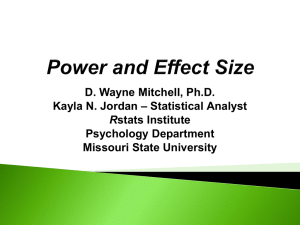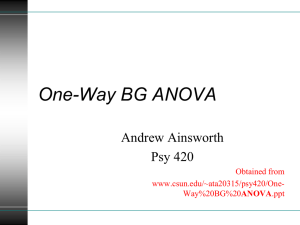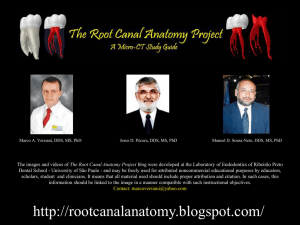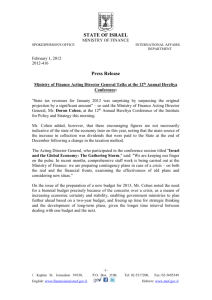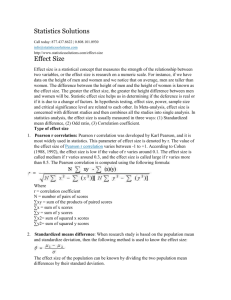Word - University of Arkansas
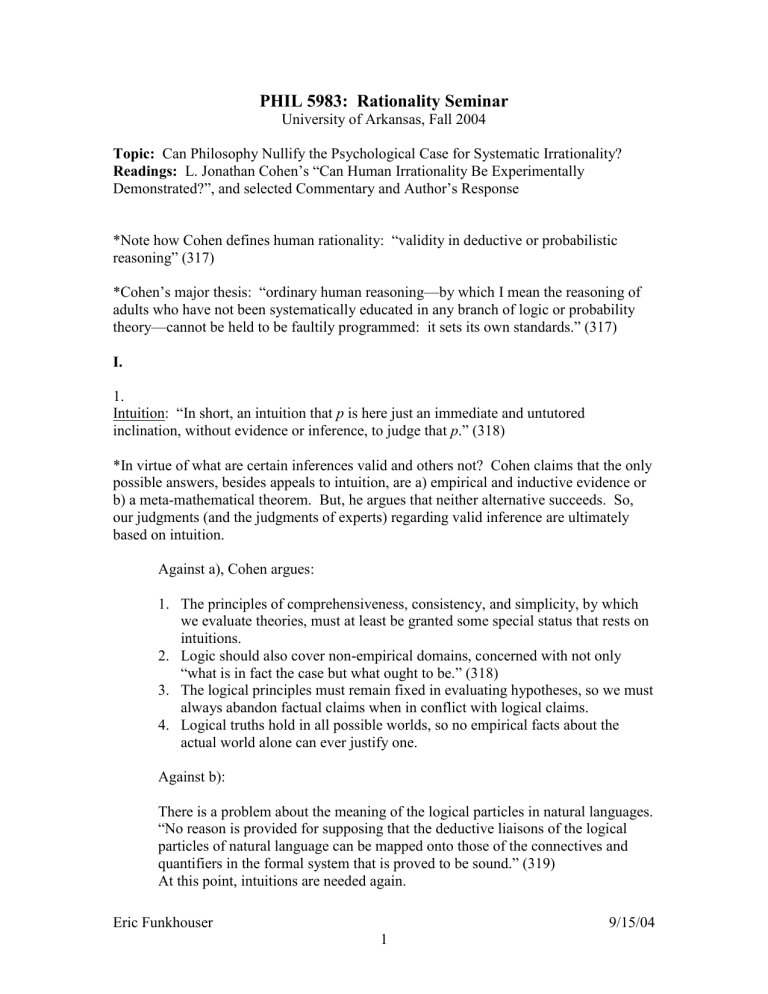
PHIL 5983: Rationality Seminar
University of Arkansas, Fall 2004
Topic: Can Philosophy Nullify the Psychological Case for Systematic Irrationality?
Readings:
L. Jonathan Cohen’s “Can Human Irrationality Be Experimentally
Demonstrated?”, and selected Commentary and Author’s Response
*Note how Cohen defines human rationality: “validity in deductive or probabilistic reasoning” (317)
*Cohen’s major thesis: “ordinary human reasoning—by which I mean the reasoning of adults who have not been systematically educated in any branch of logic or probability theory—cannot be held to be faultily programmed: it sets its own standards.” (317)
I.
1.
Intuition: “In short, an intuition that p is here just an immediate and untutored inclination, without evidence or inference, to judge that p
.” (318)
*In virtue of what are certain inferences valid and others not? Cohen claims that the only possible answers, besides appeals to intuition, are a) empirical and inductive evidence or b) a meta-mathematical theorem. But, he argues that neither alternative succeeds. So, our judgments (and the judgments of experts) regarding valid inference are ultimately based on intuition.
Against a), Cohen argues:
1.
The principles of comprehensiveness, consistency, and simplicity, by which we evaluate theories, must at least be granted some special status that rests on intuitions.
2.
Logic should also cover non-empirical domains, concerned with not only
“what is in fact the case but what ought to be.” (318)
3.
The logical principles must remain fixed in evaluating hypotheses, so we must always abandon factual claims when in conflict with logical claims.
4.
Logical truths hold in all possible worlds, so no empirical facts about the actual world alone can ever justify one.
Against b):
There is a problem about the meaning of the logical particles in natural languages.
“No reason is provided for supposing that the deductive liaisons of the logical particles of natural language can be mapped onto those of the connectives and quantifiers in the formal system that is proved to be sound.” (319)
At this point, intuitions are needed again.
Eric Funkhouser
1
9/15/04
2.
*Basically the same points carry over to probabilistic reasoning:
“In order to discover what criteria of probability are appropriate for the evaluation of lay reasoning we have to investigate what judgments of probability are intuitively acceptable to lay adults and what rational constraints these judgments are supposed to place on one another. We have to select the conception or conceptions of probability in terms of which the most coherent account of lay judgments can be given, rather than evaluate those judgments by some single independently established standard.” (319)
*On p. 320 Cohen lists 4 consequences that follow from accepting different conceptions
(i.e., as betting quotients, logical relations, relative frequencies, or causal propensities) of probability.
3.
*So, Cohen claims to have established that any normative theory of deductive or probabilistic reasoning must ultimately rest on intuitions.
--Reflective equilibrium
*What are we to make of Cohen’s comparison of the idealizations in science and ethics to the idealizations of logic? Cohen claims that physicists and ethicists often fruitfully develop theories that rest on false idealizations (e.g., frictionless planes and no moral conflicts). These idealizations mean that the theories are hedged a bit and are imperfect when applied to the actual world. Cohen thinks a similar point holds for logic:
“In the same way, logicians construct theories of natural deductions in terms of propositions, which have truth values and entailments but no time or place or causal connexions. Consequently, since the actual judgments and reasonings of human beings occur on particular dates and in particular locations, in a particular causal context, a sequence of logical formulas can only be taken to represent an actual piece of human reasoning if due regard is paid to the various respects in which the representation inevitably constitutes something of an abstraction from—or idealisation of—its orginal.”
(321)
4.
*Cohen’s big punch-line:
“…where you accept that a normative theory has to be based ultimately on the data of human intuition, you are committed to the acceptance of human rationality as a matter of fact in that area, in the sense that it must be correct to ascribe to normal human beings a cognitive competence—however often faulted in performance—that corresponds point by point with the normative theory.” (321)
--Again, Cohen presents an analogy to ethics:
“But, if you claim no special revelation in ethics, you will have to take intuitive judgments as your basis, and then people’s competence for moral judgment—as distinct,
Eric Funkhouser
2
9/15/04
of course, from their actual performance in this—cannot be faulted. Analogously, if you claim no special revelation in matters of logic or probability, you will have to be content there too to accept the inherent rationality of your fellow adults.” (321)
A distinction borrowed from linguistics (321-322): cognitive competence: the reasoning that a person is capable of performing cognitive performance: the reasoning that a person actually performs
“Just as passion or self-interest may warp our moral discernment, or memory limitations may restrict the length of the sentences we utter, so too a variety of factors may interfere with the exercise of a competence for deductive or probabilistic reasoning.” (322)
*A comment on the connection between philosophy (logic and probabilistic reasoning) and empirical psychology:
“…and hypotheses about the structure and operation of human information-processing mechanisms must then be tested against the facts of competence and performance that it is their task to explain. The structure or design of such a mechanism must account for the relevant competence, but its operation must be subject to various causes of malfunction that will account for the flaws found in actual performance.” (322)
*Again, Cohen’s main conclusion: “But we cannot attribute inferior rationality to those who are themselves among the canonical arbiters of rationality. Nothing can count as an error of reasoning among our fellow adults unless even the author of the error would, under ideal conditions, agree that it is an error.” (322)
*Cohen calls the type of narrow reflective equilibrium that he endorses “bootstrapping”.
This procedure goes as follows:
“The intuitions of ordinary people are the basis for constructing a coherent system of rules and principles by which those same people can, if they so choose, reason much more extensively and accurately than they would otherwise do. Consequently these irrational people cannot be regarded as intrinsically irrational in regard to any such cognitive activity.” (322)
*But why can’t
there be trained experts, specialists, at reasoning who are responsible for discovering the correct norms for reasoning (where these norms can diverge from ordinary practice)? Cohen’s response, unconvincing and unclear in my opinion, is in the last paragraph of section I.
II.
*Cohen thinks every bit of psychological evidence regarding alleged reasoning defects can be properly assigned to a category that shows it not to be symptomatic of human irrationality (competence). Cohen is granting all the psychological evidence, but objecting to one interpretation of it.
Eric Funkhouser
3
9/15/04
1. Cognitive Illusions
*This category covers mistakes in which an artificial environment (typically) induces errors that the subjects will later recognize and correct, if pointed out.
“They [the experimenters] have manipulated the circumstances of a situation in such a way that subjects are induced to indulge in a form of reasoning that on a few moments’ prompted reflection they would be willing to admit is invalid.” (323)
--Cohen suggests that many of the experimental effects are the result of the artificial environment and unfamiliarity of the experimental objects.
Example: Wason’s four-card problem
*Cohen attacks Tversky and Kahneman’s accounts of the availability and anchoring/adjustment heuristics in particular. Cohen remarks that the latter is not a fallacious way to reason (if done correctly). Cohen denies that availability is a heuristic.
(“But a heuristic is a way of finding something out that one does not already have at the front of one’s mind. The availability illusion consists in relying on data that one already has at the front of one’s mind.” (325))
2. Intelligence and Education
*Other limitations, Cohen claims, are due to limited intelligence or education, not irrationality.
--Cohen even claims that failures in supposedly educated individuals is due to a lack of quality education. Regarding trained psychologists who make errors:
“But what this adds to the previous finding is just a reason for reassessing the extent or success of the education that the respondents had in fact undergone.” (326)
--Cohen also makes a special usage for ‘intelligence’: intelligence: “intelligence is understood not as the competence that everyone has but as the level of those skills that are required to supply the novel input essential for the discovery of proofs.” (326)
3. Misapplications of appropriate normative theory
*Cohen suggests that, in everyday conversation, it might be acceptable to move from ‘if p, then q’ to ‘if q, then p’. (327) So, such moves might not be fallacious.
--Similarly, Cohen accuses of experimenters of not being fully explicit in their instructions concerning experiments that ask subjects to produce random outcomes.
Cohen chides:
Eric Funkhouser
4
9/15/04
“And again it is not easy to see how the subjects’ apparent failure to produce correct judgments of randomness should not be regarded as simply a measure of the aptness of their instructions.” (327)
--Cohen even goes so far as to question whether the “Gambler’s Fallacy” is a fallacy.
4. Applications of inappropriate normative theory
*Cohen argues (erroneously) that we can justifiably ignore the base-rates (in the relevant examples). See the last paragraph of 328, and onto 329. Also see the repetition of this line of thought to the disease case on p. 329 (so we know he must really mean this). It is unfortunate that Cohen argues like this and concludes:
“So the literature under criticism is propagating an analysis that could increase the number of deaths from a rare disease of this kind.” (329)
Eric Funkhouser
5
9/15/04
